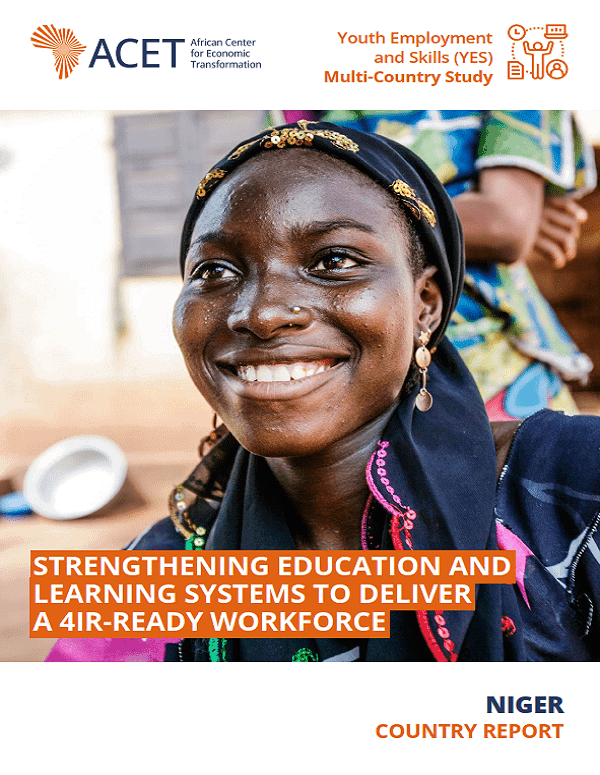The education system in Niger is performing poorly. Several factors underscore the poor performance of the system, including enrollment increases but funding decreases, a lack of specific teacher qualifications, insufficient quantity and quality of teaching materials, and an overloaded and obsolete curriculum. Indeed, a large part of the course curriculum cannot be completed because of disruptions, and insufficient teaching hours per week are devoted to the acquisition of skills in STEM.
These are some of the findings from the Youth Employment and Skills study Strengthening Education and Learning Systems to Deliver a 4IR-ready Workforce. The study also finds that employers are experiencing increasing human resource constraints and companies are identifying the skills they lack. Apart from the technical aspects, shortcomings in managerial skills such as leadership, problem-solving, and communication are emerging. Surveys also show that very few design managers are in enterprises, given that employees with tertiary level education are rare. This situation hampers initiatives. However, about 80 percent of enterprises claim to offer professional development opportunities to their staff and that they are
ready to welcome TVET trainees.
In sum, the main obstacles to the emergence of a private sector capable of absorbing a workforce ofambitious and creative young people are financial, infrastructural and regulatory. Findings from this
study indicate that an ongoing and participatory dialogue is necessary among all stakeholders in a
constantly changing workplace.
Download the report or read the factsheet to learn more.
Download Publication Read Publication
Download Factsheet Read Factsheet
This study is part of a six-country project on Youth Employment and Skills (YES) and the changing nature of work. The project examines education and training systems and their ability to adjust to meet evolving labor demand in light of rapidly evolving digital technologies and the Fourth Industrial Revolution (4IR). The six countries are Côte d’Ivoire, Ethiopia, Ghana, Niger, Rwanda, and Uganda. The project evaluates the policies, regulations and institutional arrangements aimed at boosting educational outcomes and employment opportunities, especially job creation using innovative education and training initiatives.



